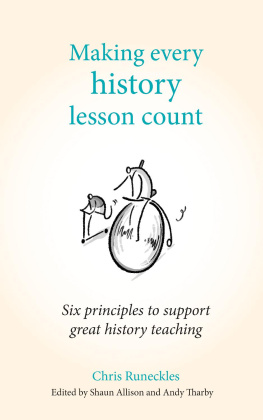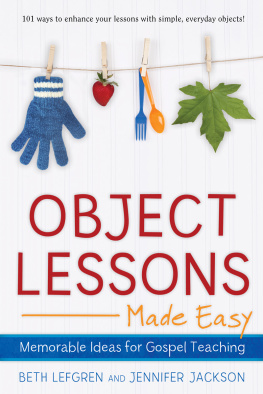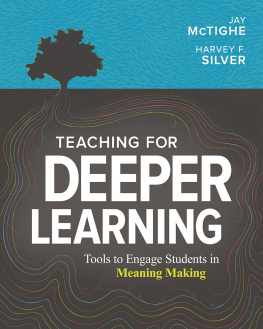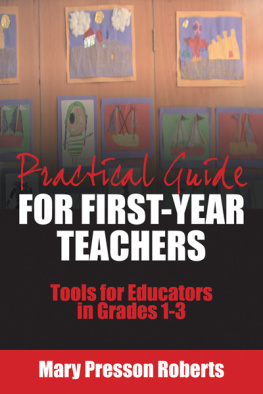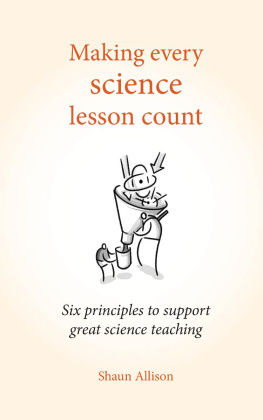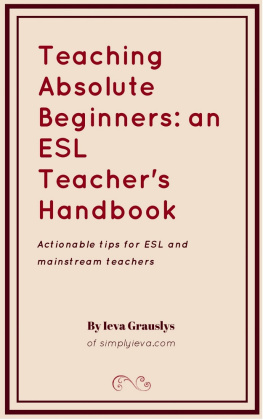While writing this book I have leaned heavily on my family, friends and colleagues; both in terms of allowing me the time and space to create it and for the ideas that it contains. Without them the process would have been impossible and I am indebted to them all.
This book is ultimately the manifestation of all that I have absorbed from the many professionals I have encountered throughout my career. Ive been lucky to work in several great history departments, and there is something of all those colleagues Ive taught alongside within these pages.
Of additional help have been the many colleagues Ive encountered in other schools or across the varied world of social media. Everyone Ive talked to or have asked to share their thinking has been gracious and generous, which has reminded me that we work in a genuinely supportive profession. Long may that continue.
Huge thanks must also go to Shaun Allison and Andy Tharby; first for giving me the chance to write this book and then for their insightful and thoughtful editing. Im extremely lucky to work with you both.
The time during which I was writing coincided with my two daughters first and third years respectively. Their smiles and love smoothed the process considerably, but it was the tireless work of my incredibly patient and brilliant wife that gave me the opportunity to write this book and is the defining reason why Ive been able to do it. Thank you, Emilie, youre the best.
Finally, this book is dedicated to my mum. She is my greatest supporter and has forever been in my corner. Mum, I hope it makes you proud.
When people are asked about their favourite, best or most memorable teacher at school, a disproportionate number seem to point to their history teachers. Perhaps this is just selective hearing on my part, but if really pushed I would say the phenomenon is real and must be down to something else.
For me, that memorable teacher was Mr Reddick, who taught A level history at the comprehensive school I attended in Dorset in the late 1990s. He only taught me one unit, British Politics, 19001939. Latterly, Ive taught this topic myself, and have been a lone voice in support of its merits, fending off howls of derision from colleagues who would rather teach almost anything else. However, Mr Reddicks teaching had ensured that I would never lose my affection for this particular corner of history.
As my perpetual connection to this piece of history proves, our subject provides a unique opportunity to find moments of resonance with young people. When brought to life by a great teacher the past can captivate, amaze, infuriate and enlighten. It gives perspective to the lives we lead, and helps us make sense of the world around us by providing that most vital of contexts, the struggle of humanity through the ages. It can also be a source of solace in turbulent times to know that many of the troubles currently being played out on the world stage are in fact extensions or repetitions of previous events.
While Mr Reddicks passion was fundamental to his success as a teacher, alone it could not make his teaching brilliant. His successful practice was built on high expectation and challenge. He never dumbed down the detail or swerved the complicated political or economic machinations that are so vital to comprehending the politics of that time. Through captivating explanation he gave the era context and helped me place myself in the somewhat alien world of Westminster many decades previous. The feedback I received was thorough and precise and allowed me to hone my essay writing technique. Perhaps most importantly, he held the reins of discussion and debate through skilful and thought-provoking questioning. There were no gimmicks and nothing flash, just great teaching built on great knowledge of, and love for, the subject.
On returning to the classroom as a trainee history teacher seven years later, I found that the landscape had seemingly shifted. Independent learning was in vogue and instead of refining the art of teaching, I was being trained to facilitate, with students expected to steer their own learning. Knowledge of the past seemed to be a commodity with little value, and we were taught that it was in fact the skills of learning that were important, with historical knowledge merely a conduit for the development of these. It felt wrong, and miles away from Mr Reddicks inspirational lessons.
Thankfully, in recent years much of this clutter has cleared away, with a welcome return to more traditional teaching approaches. In 2014 the Sutton Trust produced a report entitled What Makes Great Teaching?, which highlighted the following two factors as those linked with the strongest student outcomes:
Content knowledge. Teachers with strong knowledge and understanding of their subject make a greater impact on students learning.
Quality of instruction. This includes effective questioning and use of assessment by teachers. Also shown to be important are practices including reviewing previous learning, scaffolding new learning and giving students adequate time to practise.
The importance of these factors will not necessarily be news to many teachers, but research of this kind does provide solid foundations to evidence the validity of the choices we make every day in our classrooms. A primary objective of this book is to synthesise the latest research on teaching and learning and make it specifically applicable to history teachers. There is a huge amount of evidence available, too much for a classroom teacher to be expected to engage with directly. This book does not claim to be an exhaustive review of educational research, indeed there will be areas not referred to as they fall outside of its remit. However, it does aim to bridge the gap between the world of academic research and the history classroom, which has been too big for too long.
Allied to an examination of research must always be the collective wisdom of history teachers who have, through trial and error, found out what works most often in their contexts. This book seeks to marry the evidence with collective experience; not only from my own classroom teaching but also from the expertise of my colleagues and from the insights of the many generous professionals who share their thoughts and experiences online. There are a variety of excellent teachers and thinkers who post blogs, write articles and engage with the debates surrounding history teaching via Twitter. I have referenced several, and would recommend their work as a further means of continuing professional development (CPD).

